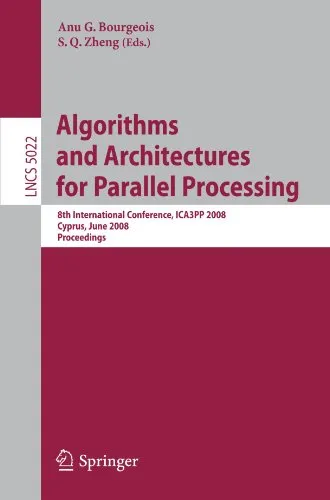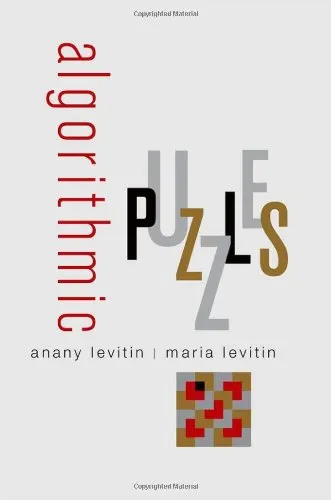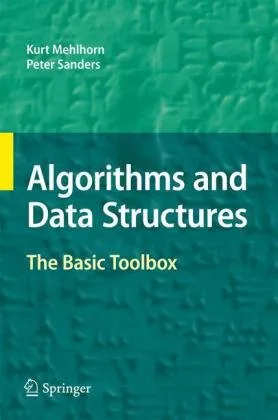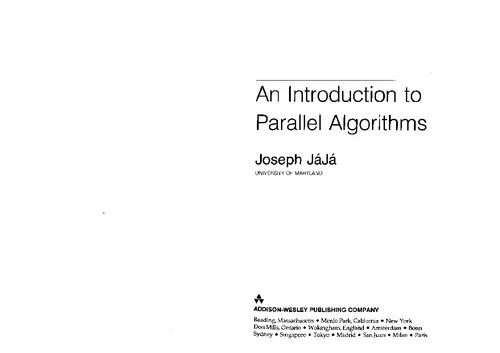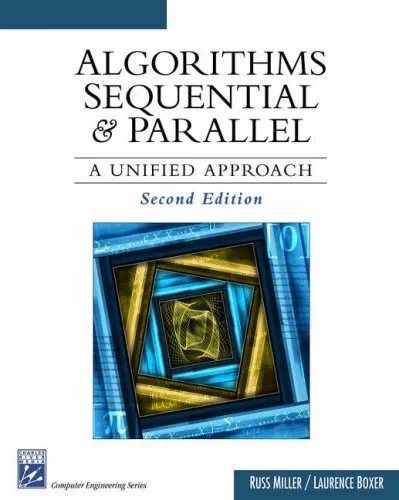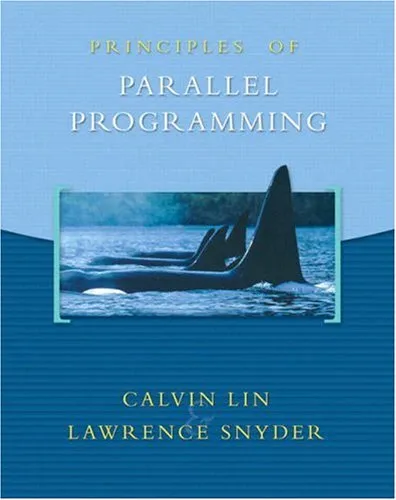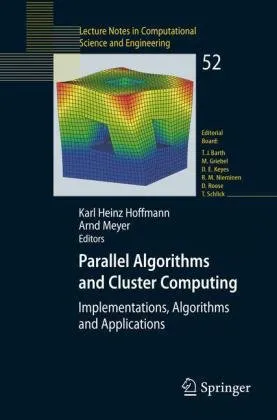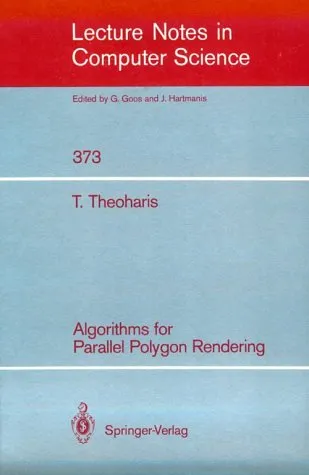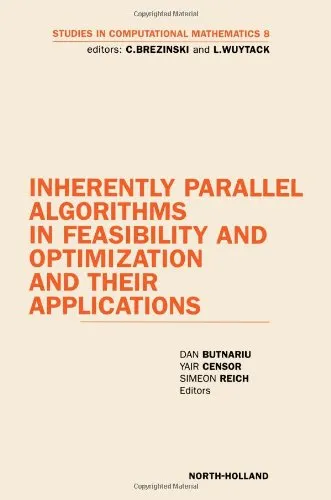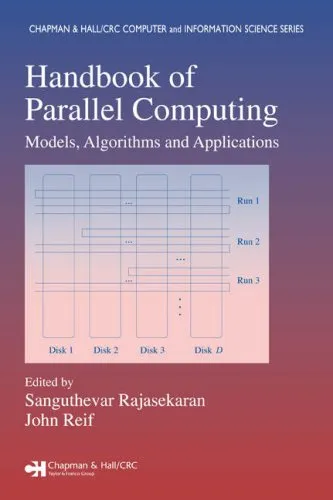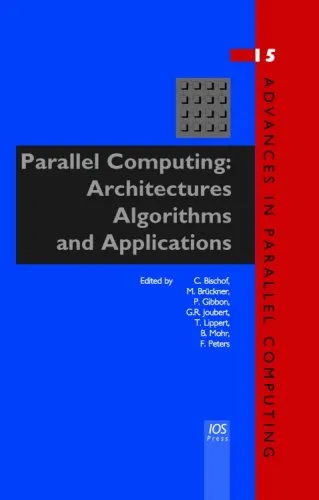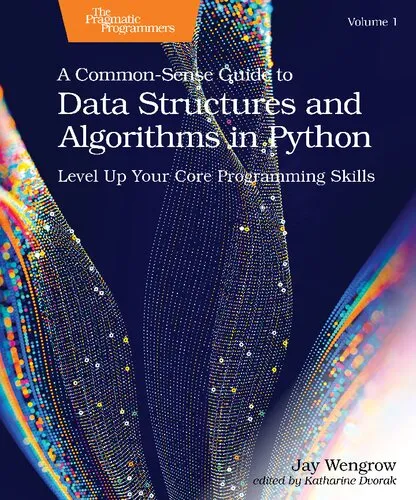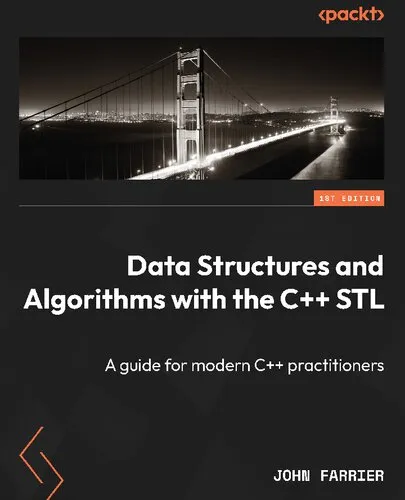Algorithms and Architectures for Parallel Processing: 8th International Conference, ICA3PP 2008, Cyprus, June 9-11, 2008 Proceedings
4.0
Reviews from our users

You Can Ask your questions from this book's AI after Login
Each download or ask from book AI costs 2 points. To earn more free points, please visit the Points Guide Page and complete some valuable actions.Related Refrences:
Introduction to "Algorithms and Architectures for Parallel Processing: 8th International Conference, ICA3PP 2008"
Parallel processing is no longer a futuristic technology but a critical enabler of modern computing. This book, "Algorithms and Architectures for Parallel Processing," presents a comprehensive collection of cutting-edge research and innovative solutions showcased at the 8th International Conference on Algorithms and Architectures for Parallel Processing (ICA3PP 2008). Held in Cyprus from June 9th to June 11th, 2008, this conference offered a platform for prominent researchers, academics, and practitioners to exchange ideas and present their groundbreaking work.
The book delves into the latest advancements in algorithms and architectures for parallel processing, bringing forth a treasure trove of knowledge for students, professionals, and researchers in computer science and related fields. By addressing challenges such as resource allocation, optimization, and scalability, the book equips readers with tools to leverage parallel processing in solving complex computational problems efficiently. Each paper showcased in this volume underscores the ever-expanding boundaries of what can be achieved in this ever-evolving domain of distributed and parallel systems.
Detailed Summary
This book serves as an aggregation of the most significant contributions presented during the ICA3PP 2008 conference. Spanning multiple sessions and covering various topics, it provides a structured analysis of challenges and opportunities in parallel processing.
The content is divided into key areas of study, including:
- Novel algorithms for the optimization of parallel processing systems to achieve better speed and efficiency.
- Advanced architectures that support parallel and distributed computing, including multi-core and cluster-based systems.
- Techniques to handle computationally intensive tasks in areas such as computational biology, data mining, and artificial intelligence.
- Innovative strategies for task scheduling, load balancing, and system reliability in distributed environments.
In addition to theoretical contributions, there is a keen focus on practical implementations that bridge the gap between academia and industry. Each paper unfolds complex ideas with precision, supported by mathematical modeling, experimental results, and case studies. The interdisciplinary approach taken throughout the book ensures its applicability to a wide array of sectors, making it an indispensable resource.
Key Takeaways
This book is packed with valuable insights that cater to audiences engaged in developing, implementing, or studying parallel processing systems. Some of the key takeaways include:
- The significance of scalability: Parallel processing allows for exponential improvements in system performance, but true scalability requires overcoming limitations related to resource availability and communication overhead.
- Novel scheduling solutions: Properly balancing workloads in distributed systems ensures reliability, efficiency, and performance optimization.
- The rise of multi-core architectures: Multi-core systems are not only a trend but a necessity, and the book demonstrates innovative approaches to designing software and hardware for them.
- Sustainability in parallel computing: Emphasis is placed on sustainable practices, including energy-efficient computing and environmentally aware system architectures.
- Practical problem-solving: Case studies highlight how parallel processing can be applied in areas such as big data analytics, scientific simulations, and cloud-based infrastructures.
Famous Quotes from the Book
"As we aim for higher computational power, parallel processing is not just an alternative—it is a necessity to keep up with the demands of modern applications."
"Optimization is more than just tweaking algorithms; it is about unlocking the full potential of resources, ensuring that computational efforts are distributed intelligently."
Why This Book Matters
The advancements in parallel processing are dramatically reshaping the way we think about computational tasks, big data, and problem-solving. This book captures the ideas and technological strides that form the backbone of this movement. Here are some reasons why this work is immensely valuable:
Academic relevance: For students and researchers, the book acts as an essential learning material for grasping complex concepts in distributed systems and parallel architectures.
Industrial applications: Professionals and practitioners will benefit from the practical examples and real-world applications that inform the strategic design of computational frameworks.
Parallel processing continues to remain at the forefront of technological innovation. This book offers a window into the leading research contributions, providing a unique opportunity for readers to stay ahead in this fast-evolving domain.
Free Direct Download
You Can Download this book after Login
Accessing books through legal platforms and public libraries not only supports the rights of authors and publishers but also contributes to the sustainability of reading culture. Before downloading, please take a moment to consider these options.
Find this book on other platforms:
WorldCat helps you find books in libraries worldwide.
See ratings, reviews, and discussions on Goodreads.
Find and buy rare or used books on AbeBooks.
1287
بازدید4.0
امتیاز0
نظر98%
رضایتReviews:
4.0
Based on 0 users review
Questions & Answers
Ask questions about this book or help others by answering
No questions yet. Be the first to ask!
